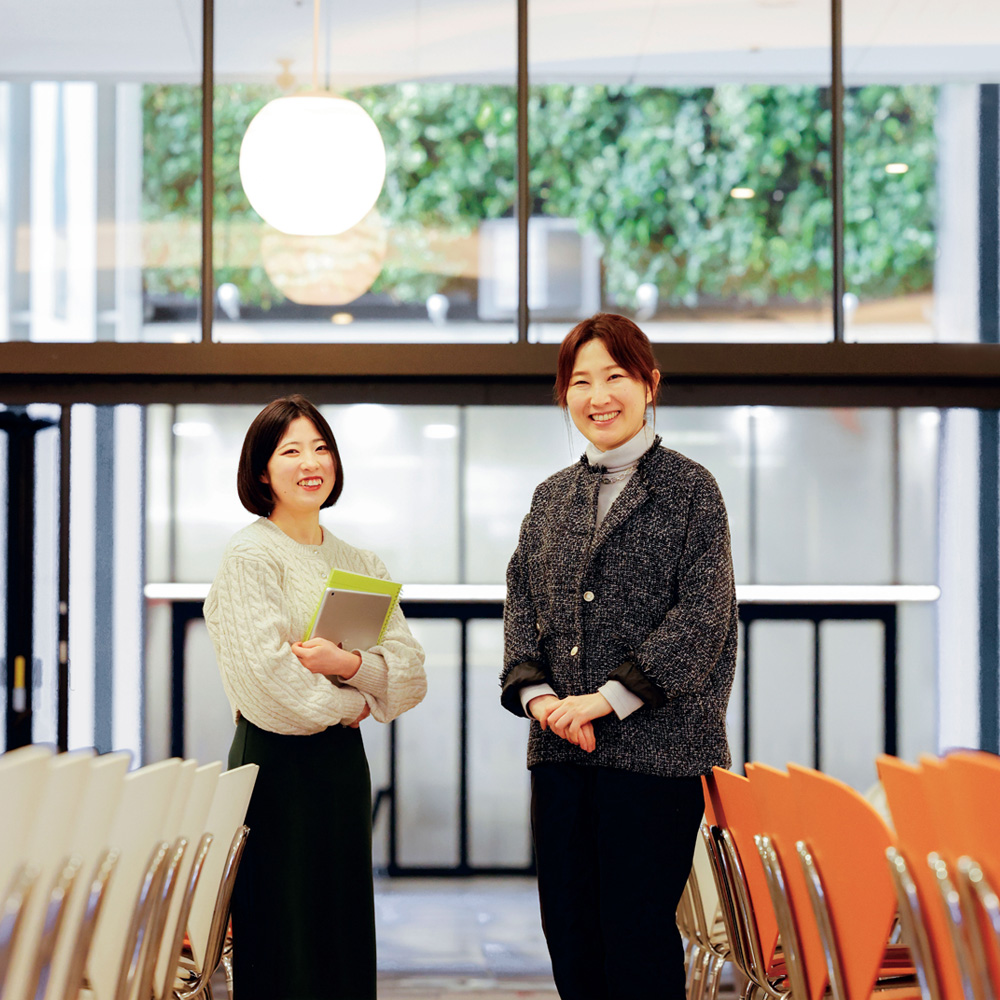Exploring the possibilities of Asia as a door to the world by traveling around and speaking with local people
Asian countries, including China, which is enjoying rapid economic growth, today serve as important bases for businesses around the world. The Department of Modern Chinese Studies helps students study the economy, politics, cultures, and languages of present-day China and other East Asian countries with reference to their respective relationships with Japan in the context of global trends. In the spring semester, sophomore students go on the Department’s four-month compulsory Study Abroad Program. This Program helps students experience contemporary aspects of life in China and other Asian countries that are likely inaccessible via the media. Students will be overwhelmed by the vibrant cities and the people they meet. The Department also aims to help students who want to develop the potential to do business worldwide by offering opportunities to conduct fieldwork, go on an internship, and embark on a double degree program in China or other Chinese-speaking country.
Developing the ability to collaborate from a broader perspective by expanding our view from China to the rest of Asia and then to other countries throughout the world
Aichi University is the only university in Japan with a faculty whose name includes the phrase “Modern Chinese,” which reflects its origin, a school called Tung Wen College that existed in Shanghai in the first half of the 20th century. Keeping the tradition of Tung Wen College alive, the Faculty has always placed importance on delivering as many of its education activities as possible—from Chinese language lessons to fieldwork and internship programs—in Chinese-speaking countries. The Faculty aims to cultivate global citizens by helping students consider the viewpoints of others by visiting other countries, sharing their thoughts with people in their host countries, and collaborating with them. Despite having a long history of interaction, Japan and China still seem to misunderstand and hold prejudices against each other in many ways. Today, with China having gained great influence over the world, Japan has an increasing need for people able to arrive at a more accurate understanding of the country from a truly objective perspective. The Faculty places importance on helping students acquire not only Chinese language skills but also a comprehensive understanding of China’s politics, economy, history, society and culture as practical real-life knowledge not only through lessons in the classroom but also various activities offered in China and other Chinese-speaking countries. The field of study includes not only mainland China but also other Chinese-speaking regions in Asia, including Taiwan, Hong Kong, and other Southeast Asian communities of Chinese ancestry with the aim of helping students develop the ability needed to lead their lives in China, other Asian countries, or other countries worldwide by developing an in-depth understanding of the ever-changing vitality of Chinese-speaking countries and regions.
Asian countries, including China, which is enjoying rapid economic growth, today serve as important bases for businesses around the world. The Department of Modern Chinese Studies helps students study the economy, politics, cultures, and languages of present-day China and other East Asian countries with reference to their respective relationships with Japan in the context of global trends. In the spring semester, sophomore students go on the Department’s four-month compulsory Study Abroad Program. This Program helps students experience contemporary aspects of life in China and other Asian countries that are likely inaccessible via the media. Students will be overwhelmed by the vibrant cities and the people they meet. The Department also aims to help students who want to develop the potential to do business worldwide by offering opportunities to conduct fieldwork, go on an internship, and embark on a double degree program in China or other Chinese-speaking country.
Developing the ability to collaborate from a broader perspective by expanding our view from China to the rest of Asia and then to other countries throughout the world
Aichi University is the only university in Japan with a faculty whose name includes the phrase “Modern Chinese,” which reflects its origin, a school called Tung Wen College that existed in Shanghai in the first half of the 20th century. Keeping the tradition of Tung Wen College alive, the Faculty has always placed importance on delivering as many of its education activities as possible—from Chinese language lessons to fieldwork and internship programs—in Chinese-speaking countries. The Faculty aims to cultivate global citizens by helping students consider the viewpoints of others by visiting other countries, sharing their thoughts with people in their host countries, and collaborating with them. Despite having a long history of interaction, Japan and China still seem to misunderstand and hold prejudices against each other in many ways. Today, with China having gained great influence over the world, Japan has an increasing need for people able to arrive at a more accurate understanding of the country from a truly objective perspective. The Faculty places importance on helping students acquire not only Chinese language skills but also a comprehensive understanding of China’s politics, economy, history, society and culture as practical real-life knowledge not only through lessons in the classroom but also various activities offered in China and other Chinese-speaking countries. The field of study includes not only mainland China but also other Chinese-speaking regions in Asia, including Taiwan, Hong Kong, and other Southeast Asian communities of Chinese ancestry with the aim of helping students develop the ability needed to lead their lives in China, other Asian countries, or other countries worldwide by developing an in-depth understanding of the ever-changing vitality of Chinese-speaking countries and regions.

